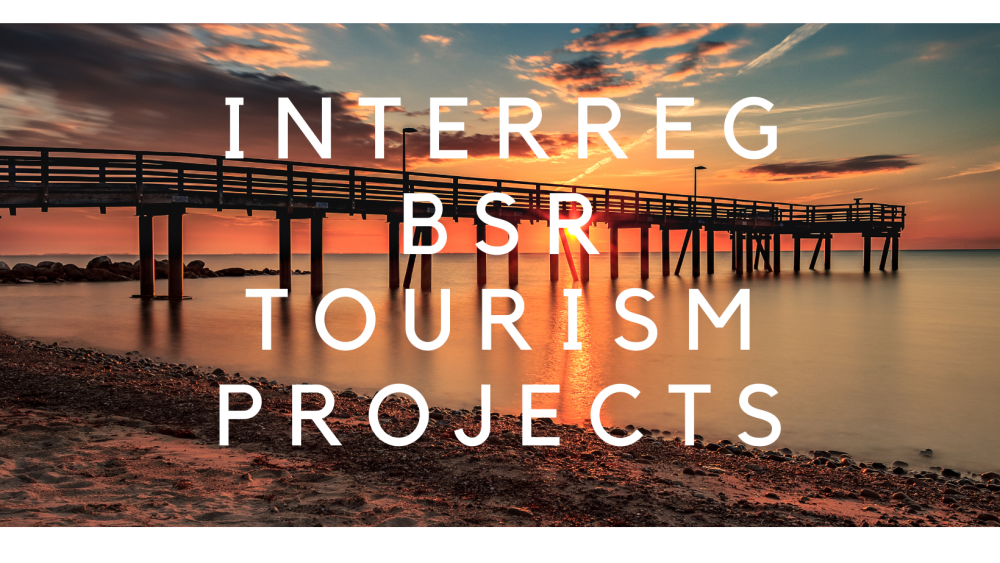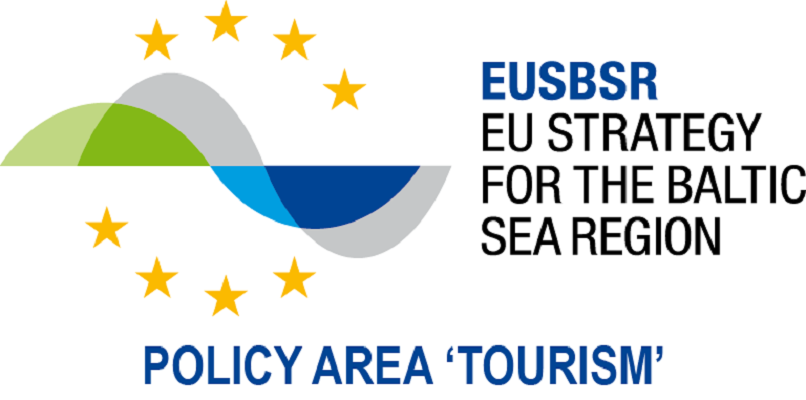PA Tourism
Tourism is essential to the Interreg Baltic Sea Region Programme, and it's easy to see why! The program's focus on cross-border collaboration brings together nations that share the Baltic Sea, resulting in a harmonious working relationship between government officials, businesses, tourism groups, and local communities.
Seeing what can be achieved when we all pull in the same direction is amazing! To gain a deeper understanding of the advantages of the Interreg Baltic Sea Region's Programme in tourism, read the text below and check the approved core and small-scale Interreg BSR Projects from the 1st and 2nd Calls.
- Cross-Border Collaboration: The Interreg Baltic Sea Region Programme promotes cooperation among countries bordering the Baltic Sea. Tourism projects under this program encourage collaboration among all types of stakeholders. Thanks to these initiatives, we can look forward to sustainable growth and better outcomes as everyone works together towards a common goal.
- Sustainable Tourism: The program emphasizes sustainable tourism practices, which are crucial for preserving the Baltic Sea region's unique natural and cultural heritage. Sustainable tourism ensures that the environmental, social, and economic impacts are balanced, helping protect delicate ecosystems, cultural sites, and local traditions for future generations.
- Diversification of Tourism Offerings: By supporting tourism projects, the program encourages the creation of diverse and innovative tourism products and services. This diversification attracts a broader range of visitors and reduces the region's dependence on a limited number of attractions, ensuring a more resilient and competitive tourism sector.
- Enhanced Competitiveness: Through the sharing of knowledge, expertise, and resources, tourism projects under the Interreg Baltic Sea Region program can strengthen the competitiveness of the region as a whole. By working together, participating countries can develop joint marketing strategies, improve infrastructure, and optimize the overall visitor experience, making the Baltic Sea area more attractive than other destinations.
- Job Creation and Economic Growth: Tourism is a significant economic driver in the Baltic Sea region. By investing in tourism projects, the program stimulates economic growth and job creation in both urban and rural areas. This, in turn, contributes to the region's overall prosperity and helps reduce socio-economic disparities between different locations.
- Cultural Exchange and Understanding: Tourism projects often involve cultural exchange programs and initiatives that foster understanding and cooperation among the people of the Baltic Sea region. Such interactions promote a sense of community and solidarity, contributing to peace and stability in the area.
- Improved Infrastructure: Tourism projects may include investments in infrastructure such as transportation networks, visitor centres, accommodation facilities, and recreational amenities. These improvements enhance the tourist experience and benefit local residents, making the region more appealing to visitors and potential investors.
- Research and Innovation: The program encourages research and innovation in the tourism sector, leading to the development of new technologies, products, and services that can enhance the overall tourism experience and sustainability.
Overall, the Interreg Baltic Sea Region Programme tourism projects play a vital role in fostering cooperation, sustainability, and economic growth in the Baltic Sea area, making it a more attractive, competitive, and responsible tourism destination.
Want to learn more about tourism projects supported by the Interreg Baltic Sea Region programme? Check out additional details on these awesome initiatives!
1st Call Small-Scale projects:
The project BaltSusBoating 2030 creates a pan-baltic cooperation platform to turn the Baltic Sea region into a sustainable and competitive leisure boating destination.
The project Bamur equips public authorities, NGOs and SMEs with a toolbox to help cultural and heritage institutions maintain their consolation role to people in times of crisis.
The project Lakes Connect establishes cooperation among authorities, NGOs and researchers to reduce tourism's impact on water quality in lakes.
1st Call Core projects:
The project BASCIL helps local food producers in rural areas diversify their business into sustainable culinary tourism services and thus reach new customers.
The project BSR Cultural Pearls helps smaller cities and regions be more attractive to live in and improve their quality of life by engaging people in cultural activities and developing a stronger sense of commonship.
The NURSECOAST-II project guides public authorities, water companies and tourist businesses in reducing seasonal increases in wastewater production and nutrient discharges in tourist areas.
The ReNutriWater helps public authorities develop action plans to recover wastewater and reuse it for cleaning, watering recreational areas and plants and domestic purposes.
2nd Call Small-Scale projects:
Bike across the Baltic - Improving bicycle tourism around the Baltic Sea
The project BAB helps public authorities across the region harmonise the infrastructure development of the Baltic Sea Cycle route and promote cycling tourism in the region.
The BEACH-SOS project helps authorities, businesses, and local communities adapt to the changing climate to ensure thriving and sustainable beach recreation and tourism in the future.
2nd Call Core projects:
Light in the Dark (website to be established)
Interactive Gardens (website to be established)
BSR HyAirport (website to be established)
Interreg South Baltic Programme projects with the official EUSBSR PA Tourism Support (via Letter of Support document):
Baltic Biking UPGRADE (BBU) is an Interreg South Baltic co-funded project aiming to support small and medium-sized enterprises (SMEs) along the southern part of the EuroVelo 10 – Baltic Sea Cycle Route. The nine partners, covering six countries, will seek to assist the SMEs in developing bicycle-friendly services and creating cycling tourism products and offers.
All these projects are supported by the EUSBSR Policy Area Tourism Coordinators.






